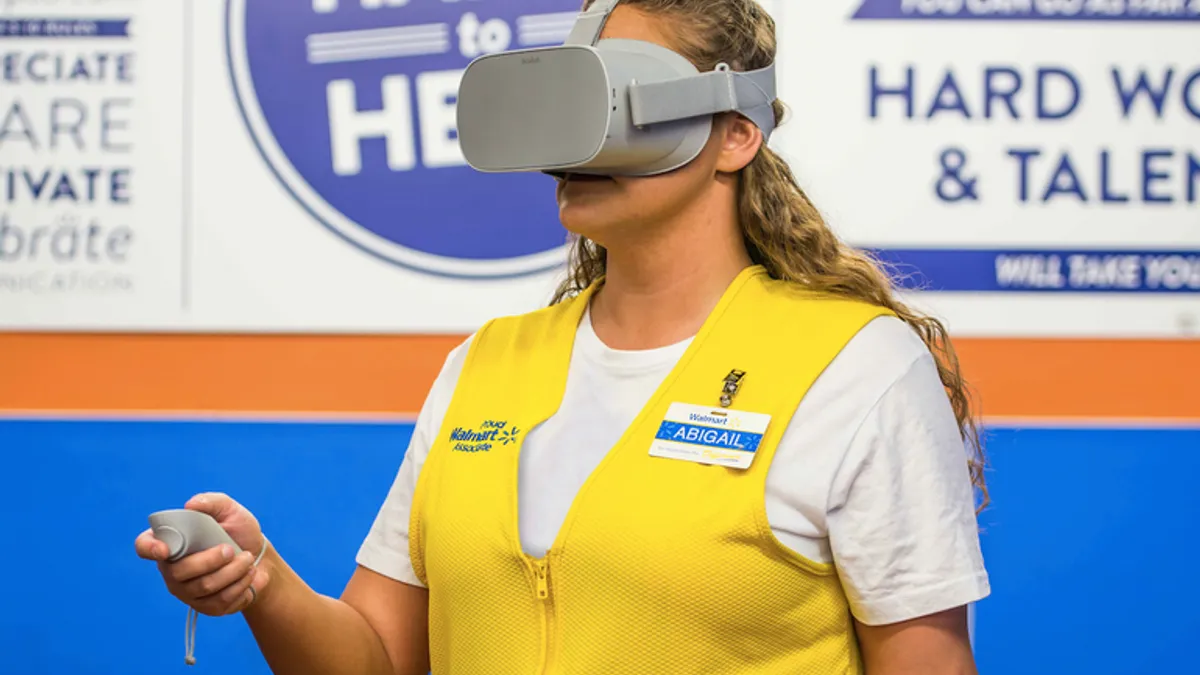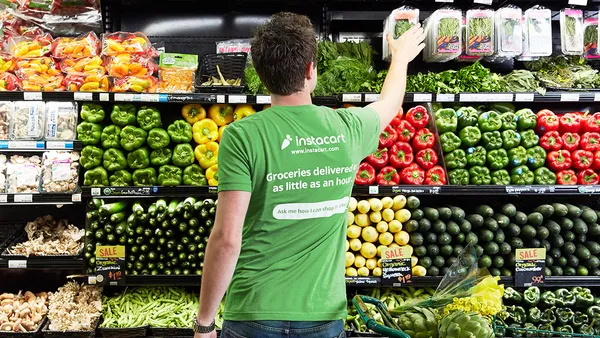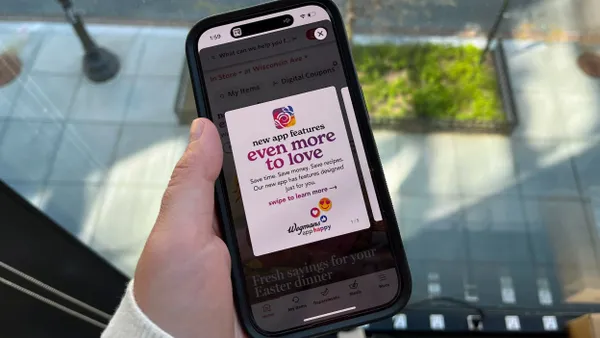Dive Brief:
- Walmart is expanding its use of virtual reality headsets to train employees. After a successful test of the technology in Walmart Academies across the U.S., the big-box retailer will now provide Oculus VR headsets in all U.S. stores for local associates’ training.
- In the retailer's blog, Andy Trainor, senior director of Walmart U.S. Academies, applauded the ability of VR to make learning “experiential.” “We’ve also seen that VR training boosts confidence and retention while improving test scores 10% to 15%—even those associates who simply watched others experience the training saw the same retention boosts,” he added.
- Four headsets will be given to every Walmart Supercenter and two to every Neighborhood Market starting in October. By the end of 2018, every associate will have access to the same training as their managers do at the Academies.
Dive Insight:
Walmart hopes VR training will improve its customer experience ratings, which have lagged other retailers for years. According to a recent survey from Temkin Group, a research and consulting firm, Walmart placed 149 out of 315 companies ranked according to their overall shopper experience.
Walmart says its new virtual reality program will help with so-called "soft skills" like customer service and empathy. In addition, the program will help associates with compliance issues, and help them grow familiar with the company's technology, like its Pickup Towers, which will be available in roughly a quarter of the retailer's stores by the end of this year.
Walmart’s decision to take VR training nationwide comes on the heels of several other technology advancements for employees. Just this week the company released a suite of custom-built apps to help store associates better manage daily activities from their phones.
According to Progressive Grocer, the apps will help with tasks such as shelf inventory and product arrival, with the aim at freeing up associates to spend more time helping out shoppers. There are seven apps in all: Planit, The Receiving App, The Downstock App, The Price Change App, The Availability App, The Claims App and The Sales App.
Walmart is not the only food and beverage distributor harnessing VR to help employees. Tyson Foods is using VR to train employees on food safety and general hazard awareness. Initial use was already successful, as 89% of users said they felt more prepared after VR training. And Kellogg is using VR to help managers see what new in-store displays would look like.
Over the past few years, Walmart has been investing time and money into technology as tools for bettering its employees’ experience. For example, Walmart has a program to help finance Walmart and Sam’s Club employees seeking associate’s and bachelor’s degrees. Also, the company offers access to wages for employees—under extreme circumstances—that need it before payday.
These initiatives come at a critical time for the company, with unemployment under 4%. Competitors have stepped up their enticements, as well, offering higher wages and various creative perks.
Walmart's drive to develop new technology, meanwhile, isn't slowing down anytime soon. Over the past year, the company has applied for several patents including an application for a virtual showroom and fulfillment center where customers could one-day store shelves outside of the physical store. Other patent applications included technology that allows shoppers to see products in 3D before buying them — a big plus for consumers who want to order fresh produce or other fresh food items via the web — and an application for a floating warehouse that would drop products at consumers’ homes via drones.












